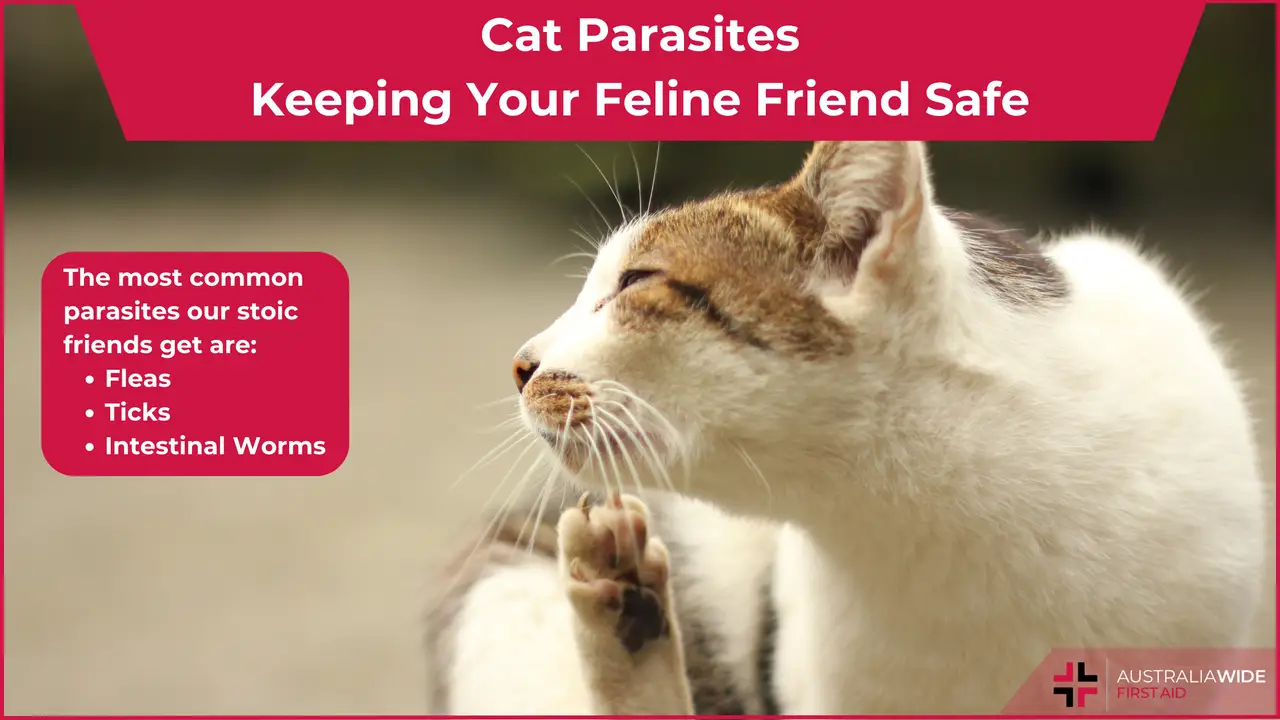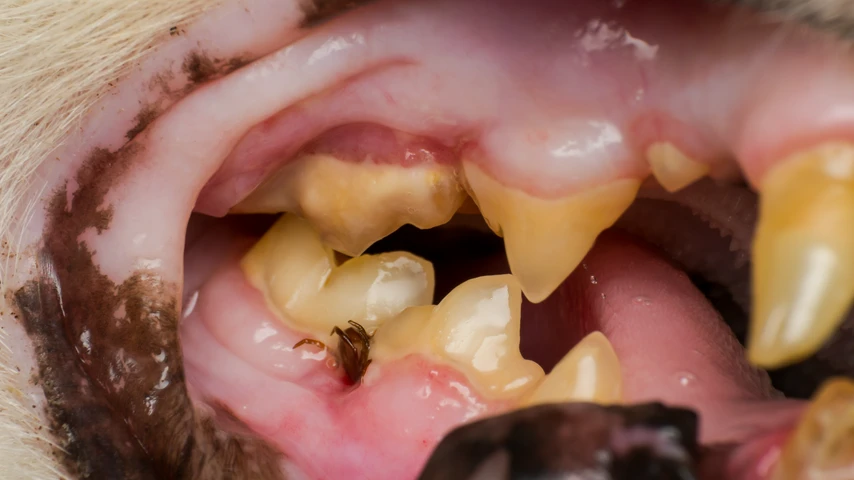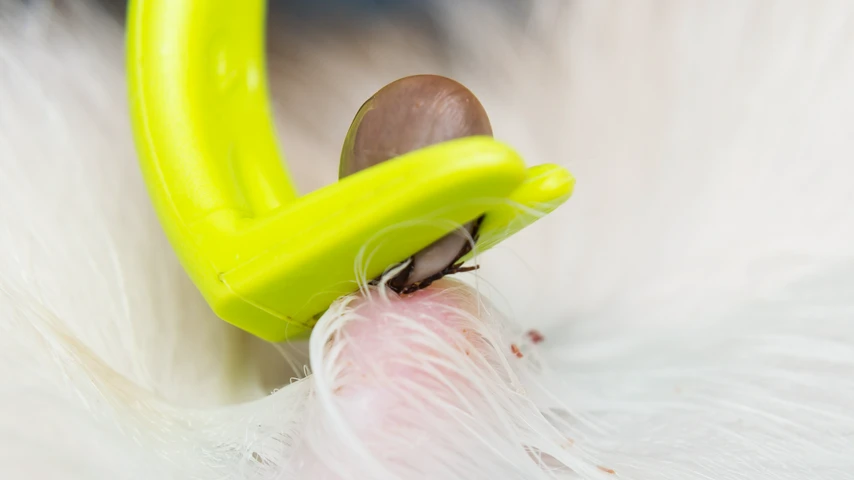Cat Parasites – Keeping Your Feline Friend Safe


We all love our cats, but they can sometimes carry parasites that can harm both of them, other furry friends in the house, and our families. In Australia, it's important to know about these parasites, how to identify them, how to get rid of them, and when to seek the help of professionals.
Australia's diverse climate and environment create an ideal environment for various parasites that can infect your beloved cat. Some of the common parasites that your cat may encounter are:
If you think that your cat has any of these nasty parasites, it is important to take immediate action to keep your cat safe and healthy.
Let's explore the most common parasites found in cats in Australia and learn how to spot them and treat them.

Fleas are the most notorious and pesky intruders that can latch onto your cat. These minuscule and hard-to-spot creatures are experts at hitching rides on your cat during outdoor adventures and can even infiltrate your home through contact with infested areas, which can lead to a much bigger problem - that's why catching these little pests early is key.
Identification:
Identifying fleas might seem like spotting a needle in a haystack, but keep an eye out for tell-tale signs. Common indicators include excessive scratching, persistent itching, or visible bite marks on your cat's skin.
Cats, unlike dogs, groom themselves quite regularly and might eat the fleas they find, making it hard for you to find the source of their new skin problems. Here's what the experts say cat owners should look out for if they suspect fleas:
How Fleas Impact Your Cats Life:
While fleas might seem like nuisances, their presence can wreak havoc on your cat's well-being. These blood-sucking pests cause constant itching and skin irritation, leading to hair loss and potential allergic reactions in sensitive cats. A secondary problem emerges from fleas in cats because cats regularly groom and, in turn, eat the fleas --worms.
Prevention and Treatment:
Preventing fleas means proactive care on your part as an owner by regular use of vet-approved flea treatments such as topical solutions, oral medications, or collars. These treatments effectively repel fleas and halt their life cycle, preventing further infestation.
Vacuuming your home regularly, especially areas where your cat frequents, and washing your cat's bedding in hot water can significantly reduce the chances of flea infestations.
Seeking Veterinary Guidance:
No matter how small the issue might seem, it's always important to contact your local vet. Your vet can recommend appropriate flea control products tailored to your cat's needs, age, lifestyle, and your particular region of Australia.

Australia's expansive terrain harbours a staggering diversity of ticks, exceeding 70 known species. Among these, the paralysis tick, found in Eastern Australia (Ixodes holocyclus), stands out as one of the worst, potentially causing paralysis and, in severe cases, fatalities, while other ticks pose less threats and are more of a nuisance.
Generally, ticks attach themselves to your cat's skin, particularly in warm, humid environments or wooded areas.
How to Spot Ticks:
Ticks can be found by feeling for small, hard bumps or, in some cases, by observing ticks on your cat's skin and fur as they crawl around.
Health Implications:
Tick bites can have some pretty serious consequences. They carry nasty side effects for their hosts, including:
Prevention and Proper Removal Tips:
You'll need to check your cat regularly. We recommend daily checks for ticks, particularly after they have been outside.
If you do find a tick on your cat, it is important to remove it immediately. You should use fine-tipped tweezers or a tick removal tool to grasp the tick firmly at the skin and steadily pull upward to ensure complete removal. This will reduce the risk of leaving any mouthparts behind, which could cause infection.
Veterinary Assistance:
If you think your cat has been bitten by a tick, it's important to act quickly and seek help from a vet. They can provide advice on how to prevent ticks and recommend treatments to protect your cat from these harmful parasites.

Intestinal worms pose a widespread health risk for cats and can cause a range of health problems that can last for years.
Types of Intestinal Worms:
Cats in Australia are susceptible to various types of intestinal worms, including roundworms, hookworms, and tapeworms. Each type poses its own set of health risks and symptoms.
Symptoms and Health Implications:
It can be tough to identify intestinal worms in cats as symptoms can vary from cat to cat depending on their lifestyle and the severity of the infestation.
Look out for signs like weight loss, diarrhoea, vomiting, a bloated abdomen, and a dull coat. In severe cases, kittens may experience stunted growth or weakness.
Transmission and Prevention:
Cats can get intestinal worms from contaminated food or water or by coming into contact with infected faeces or environments. Veterinarians recommend regular deworming treatments. The treatment type may vary depending on your cat's age, lifestyle, and risk of exposure. Good hygiene practices, such as cleaning litter boxes often, can also help reduce the risk of contamination.
Veterinary Care:
Vets can perform tests on faecal matter to detect worm eggs and then suggest suitable medication for deworming. Kittens, especially, need multiple deworming treatments as they are more susceptible to worm infestations.

If you own a cat in Australia, you might have a run in with parasites. But with some preventive measures, regular check-ups, and a watchful eye, you can keep your furry friend happy, healthy, and free of parasites so they can live out a happy life.

April 16, 2024
Like humans, our canine friends are susceptible to allergies, which can significantly affect their quality of life. This article aims to shed light on common allergies in dogs, their signs and symptoms, treatment options, and advice on when to consult a veterinarian.

March 19, 2024
From respiratory distress to changes in droppings and abnormal behaviours, this guide outlines the key indicators of illness that require immediate attention. By understanding these warning signs, bird owners can take proactive steps to ensure their feathered companions receive timely medical treatment, ultimately promoting their health and well-being.

February 12, 2024
In the hustle and bustle of our daily lives, it's easy to overlook that our furry friends may not be leading lives as fulfilled as we'd like. Just like humans, dogs too can suffer from monotony, especially those spending large amounts of time indoors. Recognizing and addressing boredom in our canine companions is crucial for their overall well-being.